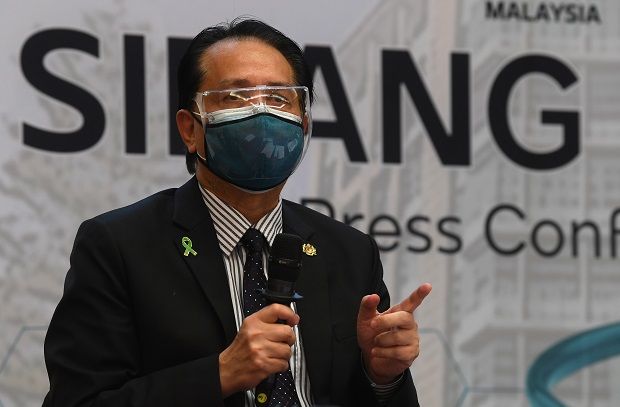
KUALA LUMPUR (Bernama): Of the 20,396 Covid-19 new cases reported on Sunday (Sept 5), 66.3% or 13,519 have no history of receiving the vaccine or have not completed the vaccination process.
In a statement, Health director-general Tan Sri Dr Noor Hisham Abdullah said those who had not completed their vaccination included those who had only received one vaccine dose or had not gone past the 14-day mark after getting the second dose.
He said 6,877 cases or 33.7% had completed their vaccination, with 6,795 of them in category one, i.e., having no symptoms or in category two with minor symptoms.
“This situation shows that those who have completed their vaccination are better protected and less likely of getting serious Covid-19 infection.
“Of the 322 cases in category three (with symptoms) up to category five (critical), 240 or 74.5% comprise those with no history of vaccination or have not completed their vaccination compared to only 82 cases (25.5%) who have been fully vaccinated,” he said.
According to Dr Noor Hisham, another 336 deaths from Covid-19 involving 274 Malaysians and 62 foreign nationals were reported.
He said 107 fatal cases outside the hospitals or brought-in-dead (BID) were recorded, the highest number of BID cases since the pandemic hit the country.
He also said that 20,573 patients who had recovered from the viral infection were recorded, while there were 255,789 active cases in the country with 1,338 of them requiring treatment in intensive care units (ICU).
“Of the total cases in ICUs, 959 are positive cases while 379 are suspected cases that are being investigated.
“Meanwhile, there are 735 cases today needing respiratory support, comprising 436 Covid-19 cases and 299 suspected cases that are under investigation.
“There are also 37 new clusters reported today with 21 of these being workplace clusters, 12 community clusters, three high-risk groups and one at a detention centre, bringing the total number of active clusters to 1,457,” he added. – Bernama























